Strictly Personal
Forces that will defeat Buhari’s Naira project by Lanre Adewole
Published
1 year agoon
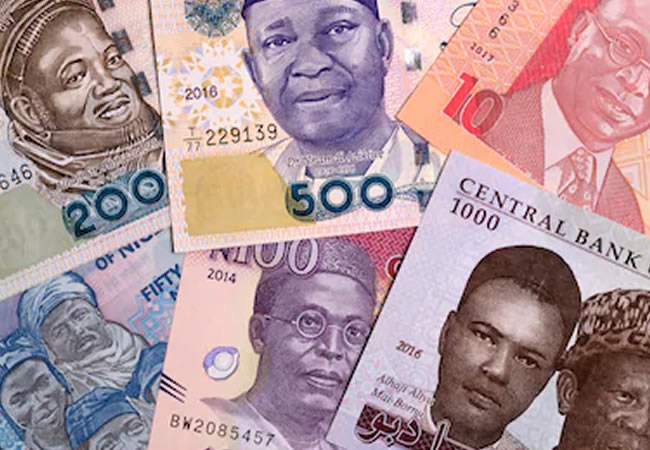
When President Muhammadu Buhari decided to publicly back the Governor of Central Bank, Godwin Emefiele, against his Minister of Economy (Finance, Budget, and National Planning=Economy), Zainab Ahmed, in debating the sense of redesigning the nation’s currency at a time like this, the President simply told the Minister, she is surplus to requirement in shaping one of his major legacy projects.
Having been publicly shamed, Zainab should have been gone by now, but resigning over a presidential rebuke, would be seen as against the run of play, around here. Except fired or forced to resign, office holders in Nigeria, regardless of the extent of public ridicule subjected to, will rather hang on, needed or not. The few, like Kemi Adeosun, Zainab’s predecessor, had no refuge to run to. Her godfather reportedly abandoned her and she gotta go.
The seat currently occupied by Zainab is arguably the most important cabinet position after the AGF office, which the Constitution (section 174) says is a must-have. In a normal setup, there is no consideration that should leave her out of the coffee-room team, handling the project. And for her to hang on, after the double humiliation, first, of being left out and of being openly rebuked by the President, should be a red flag, considering the project’s political and economic implications.
The Zainab no-show also speaks to the poorly-concealed dysfunction in Buhari’s economic team, which the Nigerian people have been paying dearly for. The obvious power-play and influence-peddling within the team, is surely hurting the economy because when team members undermine one another, it is the national assignment that will bear the brunt.
In an administration where no one is providing an all-encompassing leadership, and everyone trying to leverage relevance to make the most of the time left, I personally believe there is no chance in a million Zainab first heard about the currency project the day Emefiele made a formal announcement. The patronage her office can dispense would see to her, even getting unsolicited information, though she is considered a featherweight in the global economic community.
Her claim at the senate appearance was just griping, for being officially considered inconsequential and a liability. But her statement would still be factual, if there was no official correspondence to her office, even if verbally notified by Godwin, which isn’t even the case here.
Though CBN is autonomous so to say, (the President’s wish per time, is the real autonomy for a genuflecting fellow like Emefiele), the decision to keep the ma’am in charge of the economy out of the loop on the project, can’t definitely be Emefiele’s, no matter how rascally and reckless he has portrayed self, especially with the dangerous incursion into APC presidential field as CBN governor. The decision to humiliate Zainab and obviously her backers in the political spectrum was firmly the President. To show Zainab that it was his fight when she threw the gauntlet at the senate, it was Aso Rock that picked it up, firing a broadside at her.
Since September 14, 2018, when Buhari elevated her to replace Adeosun, it would be the first time the Minister would be openly scolded by the President and for someone who rarely moves against his appointees, the matter, this time, must be very serious and the implementation very dear to his heart. He was very clear that he is targeting political and economic saboteurs.
On June 27, 1942, America captured eight saboteurs working for Germany on American soil. A military commission found them guilty. One was sentenced to, life imprisonment, another to 30 years, and six received the death penalty, which was carried out within a few days.
The President is a former military man. Though a civilian now, his understanding of how saboteurs are treated, must still be with him. By excusing a senior cabinet member like Zainab from a project with the potential to define his entire public life, in khaki and agbada, he must have stretched the consideration beyond the harmless-looking, soft-speaking woman, with a gentle mien.
But he doesn’t trust her either. When you keep a piece of important information from someone who can’t affect the potency of it, you don’t want him or her, to snitch to those who could cancel its efficacy. Yoruba will call such a fellow, olofofo.
Somehow, I want to concede to the President he possibly had genuine concerns to keep Zainab away at the incubatory stage. He possibly would have ignored her and her tendencies if they do not possess the capacity, to make complete nonsense of the policy and ruin the entire memory of the President, outside the office.
At least, recent history shows he ignored now-late Aisha Al-Hassan, popularly known as Mama Taraba when a leaked video showed her preference for Atiku as President over and above her principal’s re-election. That was simply not wishing the President well. But he took it in his strides, allowing Hajia to continue in office as Women Affairs minister, until she voluntarily resigned on July 27, 2018, to seek Taraba governorship. The President knew she posed no direct threat.
But how dangerous can Zainab and her promoters in government be, to the legacy project?. The minister is from Kaduna State. As things stand today, nobody gets anything due to the state from the federal, without the support of the governor. He is a self-confessed Buharist, but also led the coup that toppled the Northern agenda of the President, regarding APC’s presidential candidate, the same way he led the coup against another benefactor, Olusegun Obasanjo’s third-term bid.
The political class has largely opted for radio silence since the President announced his desire to tackle vote-buying that twice bought victory for him, even if he wasn’t the direct spender. When the class is buffeted, platforms don’t matter again. When I joked to a top politician that dibokose’be (vote-buying) would have to be in dollars this time, since politicians would not have access to bullion vans, he assured me that at least two of the leading presidential candidates can commandeer billions of naira, anytime they need cash for election purposes. Banks’ CEOs are politicians’ toys and are ready to risk jail term for a potential incoming President than serving the interest of an outgoing lame-duct incumbent. Any loss suffered now, will be recouped from June 2023.
Once the banks’ chiefs are in, only CBN can salvage the project, by greatly limiting cash flow to the banks. But can Emefiele himself say no to those who ran his ill-fated presidential campaign? Can the nation trust him, to deal with the crookedness of his banker colleagues who are likely to preserve all redesigned naira notes for their politician-patrons, just like they currently do with the dollar, to the detriment of everyday Nigerian? Will Nigerians go through the obvious pains of the policy, without the gain of having their electoral will on the ascendancy?
Now that it is still day, the President can still pull the policy by announcing an indefinite extension of the takeoff date, if his honest review predicts a loss against those waiting to cancel the policy, within his government and elsewhere.
But if he is ready to fight for the people, like his predecessor Goodluck Jonathan, he might just snatch victory from the jaws of defeat, whether APC wins or loses.
You may like
-


Nigeria’s central bank insists depleting external reserves not due to Naira defence
-
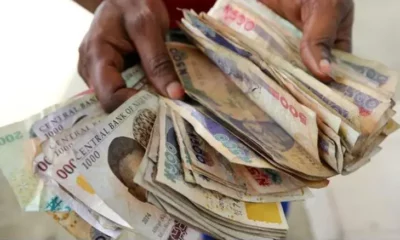

Nigeria’s currency falls further as banks sell $3.3bn
-
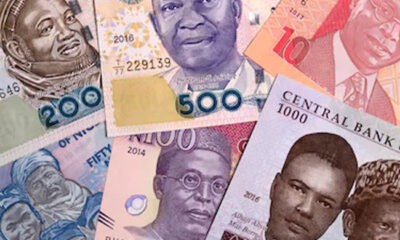

Naira: Comedy inside a tragedy, By Dakuku Peterside
-
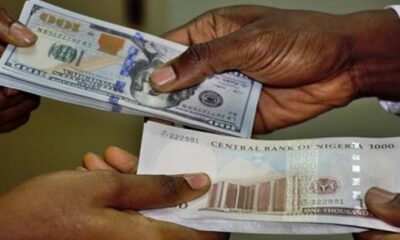

Nigeria’s central bank settles almost $2 billion FX backlog
-


Nigeria’s external reserves fall by $1.65bn in 6 months
-


Verve partners Sterling Bank to unveil first Naira credit card
Strictly Personal
Air Peace, capitalism and national interest, By Dakuku Peterside
Published
1 week agoon
April 16, 2024
Nigerian corporate influence and that of the West continue to collide. The rationale is straightforward: whereas corporate activity in Europe and America is part of their larger local and foreign policy engagement, privately owned enterprises in Nigeria or commercial interests are not part of Nigeria’s foreign policy ecosystem, neither is there a strong culture of government support for privately owned enterprises’ expansion locally and internationally.
The relationship between Nigerian businesses and foreign policy is important to the national interest. When backing domestic Nigerian companies to compete on a worldwide scale, the government should see it as a lever to drive foreign policy, and national strategic interest, promote trade, enhance national security considerations, and minimize distortion in the domestic market as the foreign airlines were doing, boost GDP, create employment opportunities, and optimize corporate returns for the firms.
Admitted nations do not always interfere directly in their companies’ business and commercial dealings, and there are always exceptions. I can cite two areas of exception: military sales by companies because of their strategic implications and are, therefore, part of foreign and diplomatic policy and processes. The second is where the products or routes of a company have implications for foreign policy. Air Peace falls into the second category in the Lagos – London route.
Two events demonstrate an emerging trend that, if not checked, will disincentivize Nigerian firms from competing in the global marketplace. There are other notable examples, but I am using these two examples because they are very recent and ongoing, and they are typological representations of the need for Nigerian government backing and support for local companies that are playing in a very competitive international market dominated by big foreign companies whose governments are using all forms of foreign policies and diplomacy to support and sustain.
The first is Air Peace. It is the only Nigerian-owned aviation company playing globally and checkmating the dominance of foreign airlines. The most recent advance is the commencement of flights on the Lagos – London route. In Nigeria, foreign airlines are well-established and accustomed to a lack of rivalry, yet a free-market economy depends on the existence of competition. Nigeria has significantly larger airline profits per passenger than other comparable African nations. Insufficient competition has resulted in high ticket costs and poor service quality. It is precisely this jinx that Air Peace is attempting to break.
On March 30, 2024, Air Peace reciprocated the lopsided Bilateral Air Service Agreement, BASA, between Nigeria and the United Kingdom when the local airline began direct flight operations from Lagos to Gatwick Airport in London. This elicited several reactions from foreign airlines backed by their various sovereigns because of their strategic interest. A critical response is the commencement of a price war. Before the Air Peace entry, the price of international flight tickets on the Lagos-London route had soared to as much as N3.5 million for the economy ticket. However, after Air Peace introduced a return economy class ticket priced at N1.2 million, foreign carriers like British Airways, Virgin Atlantic, and Qatar Airways reduced their fares significantly to remain competitive.
In a price war, there is little the government can do. In an open-market competitive situation such as this, our government must not act in a manner that suggests it is antagonistic to foreign players and competitors. There must be an appearance of a level playing field. However, government owes Air Peace protection against foreign competitors backed by their home governments. This is in the overall interest of the Nigerian consumer of goods and services. Competition history in the airspace works where the Consumer Protection Authority in the host country is active. This is almost absent in Nigeria and it is a reason why foreign airlines have been arbitrary in pricing their tickets. Nigerian consumers are often at the mercy of these foreign firms who lack any vista of patriotism and are more inclined to protect the national interest of their governments and countries.
It would not be too much to expect Nigerian companies playing globally to benefit from the protection of the Nigerian government to limit influence peddling by foreign-owned companies. The success of Air Peace should enable a more competitive and sustainable market, allowing domestic players to grow their network and propel Nigeria to the forefront of international aviation.
The second is Proforce, a Nigerian-owned military hardware manufacturing firm active in Rwanda, Chad, Mali, Ghana, Niger, Burkina Faso, and South Sudan. Despite the growing capacity of Proforce in military hardware manufacturing, Nigeria entered two lopsided arrangements with two UAE firms to supply military equipment worth billions of dollars , respectively. Both deals are backed by the UAE government but executed by UAE firms.
These deals on a more extensive web are not unconnected with UAE’s national strategic interest. In pursuit of its strategic national interest, India is pushing Indian firms to supply military equipment to Nigeria. The Nigerian defence equipment market has seen weaker indigenous competitors driven out due to the combination of local manufacturers’ lack of competitive capacity and government patronage of Asian, European, and US firms in the defence equipment manufacturing sector. This is a misnomer and needs to be corrected.
Not only should our government be the primary customer of this firm if its products meet international standards, but it should also support and protect it from the harsh competitive realities of a challenging but strategic market directly linked to our national military procurement ecosystem. The ability to produce military hardware locally is significant to our defence strategy.
This firm and similar companies playing in this strategic defence area must be considered strategic and have a considerable place in Nigeria’s foreign policy calculations. Protecting Nigeria’s interests is the primary reason for our engagement in global diplomacy. The government must deliberately balance national interest with capacity and competence in military hardware purchases. It will not be too much to ask these foreign firms to partner with local companies so we can embed the technology transfer advantages.
Our government must create an environment that enables our local companies to compete globally and ply their trades in various countries. It should be part of the government’s overall economic, strategic growth agenda to identify areas or sectors in which Nigerian companies have a competitive advantage, especially in the sub-region and across Africa and support the companies in these sectors to advance and grow to dominate in the African region with a view to competing globally. Government support in the form of incentives such as competitive grants ,tax credit for consumers ,low-interest capital, patronage, G2G business, operational support, and diplomatic lobbying, amongst others, will alter the competitive landscape. Governments and key government agencies in the west retain the services of lobbying firms in pursuit of its strategic interest.
Nigerian firms’ competitiveness on a global scale can only be enhanced by the support of the Nigerian government. Foreign policy interests should be a key driver of Nigerian trade agreements. How does the Nigerian government support private companies to grow and compete globally? Is it intentionally mapping out growth areas and creating opportunities for Nigerian firms to maximize their potential? Is the government at the domestic level removing bottlenecks and impediments to private company growth, allowing a level playing field for these companies to compete with international companies?
Why is the government patronising foreign firms against local firms if their products are of similar value? Why are Nigerian consumers left to the hands of international companies in some sectors without the government actively supporting the growth of local firms to compete in those sectors? These questions merit honest answers. Nigerian national interest must be the driving factor for our foreign policies, which must cover the private sector, just as is the case with most developed countries. The new global capitalism is not a product of accident or chance; the government has choreographed and shaped it by using foreign policies to support and protect local firms competing globally. Nigeria must learn to do the same to build a strong economy with more jobs.
Strictly Personal
This is chaos, not governance, and we must stop it, By Tee Ngugi
Published
2 weeks agoon
April 10, 2024
The following are stories that have dominated mainstream media in recent times. Fake fertiliser and attempts by powerful politicians to kill the story. A nation of bribes, government ministries and corporations where the vice is so routine that it has the semblance of policy. Irregular spending of billions in Nairobi County.
Billions are spent in all countries on domestic and foreign travel. Grabbing of land belonging to state corporations, was a scam reminiscent of the Kanu era when even public toilets would be grabbed. Crisis in the health and education sectors.
Tribalism in hiring for state jobs. Return of construction in riparian lands and natural waterways. Relocation of major businesses because of high cost of power and heavy taxation. A tax regime that is so punitive, it squeezes life out of small businesses. Etc, ad nauseam.
To be fair, these stories of thievery, mismanagement, negligence, incompetence and greed have been present in all administrations since independence.
However, instead of the cynically-named “mama mboga” government reversing this gradual slide towards state failure, it is fuelling it.
Alternately, it’s campaigning for 2027 or gallivanting all over the world, evoking the legend of Emperor Nero playing the violin as Rome burned.
A government is run based on strict adherence to policies and laws. It appoints the most competent personnel, irrespective of tribe, to run efficient departments which have clear-cut goals.
It aligns education to its national vision. Its strategies to achieve food security should be driven by the best brains and guided by innovative policies. It enacts policies that attract investment and incentivize building of businesses. It treats any kind of thievery or negligence as sabotage.
Government is not a political party. Government officials should have nothing to do with political party matters. They should be so engaged in their government duties that they literally would not have time for party issues. Government jobs should not be used to reward girlfriends and cronies.
Government is exhausting work undertaken because of a passion to transform lives, not for the trappings of power. Government is not endless campaigning to win the next election. To his credit, Mwai Kibaki left party matters alone until he had to run for re-election.
We have corrupted the meaning of government. We have parliamentarians beholden to their tribes, not to ideas.
We have incompetent and corrupt judges. We have a civil service where you bribe to be served. Police take bribes to allow death traps on our roads. We have urban planners who plan nothing except how to line their pockets. We have regulatory agencies that regulate nothing, including the intake of their fat stomachs.
We have advisers who advise on which tenders should go to whom. There is no central organising ethos at the heart of government. There is no sense of national purpose. We have flurries of national activities, policies, legislation, appointments which don’t lead to meaningful growth. We just run on the same spot.
Tee Ngugi is a Nairobi-based political commentator
EDITOR’S PICK


All my tough policy decisions are in Nigerians’ interest— Tinubu
President Bola Tinubu of Nigeria has insisted that all his tough policy decisions and reforms have been taken with the...
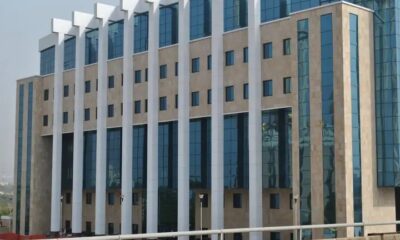

Nigerian oil regulator implements regional fuel standards
Nigeria’s oil authority has clarified that the recent changes to diesel fuel sulphur content standards are part of a regional...


IMF predicts Kenya’s economy to overtake Angola
The International Monetary Fund (IMF) says that this year, Kenya will pass Angola to become the fourth biggest economy in...


S’Africa lengthens troop deployment in Mozambique, Congo DR
President Cyril Ramaphosa said in a speech that South Africa’s military would keep sending troops to Mozambique and the Democratic...


Nigeria govt cancels 924 dormant mining licences
Nigeria’s minister of mines said on Wednesday that 924 expired mining licences had been cancelled immediately. The country now wants...


Nigeria’s NGX Group enters into strategic investment partnership with Ethiopian Securities Exchange
Leading Nigerian integrated market infrastructure group in Africa, the Nigerian Exchange Group (NGX), has announced strategic investment in the Ethiopian...


Namibia govt condemns tourists posing naked on Big Daddy Dune
The Namibian authorities have frowned at tourists who posed naked at the Big Daddy Dune, the country’s top tourist attraction...
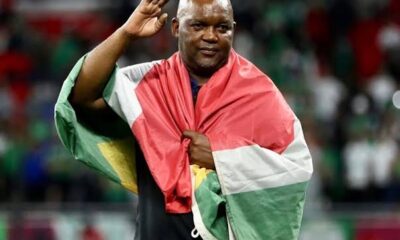

Domestic worker sues Pitso Mosimane, wife following debilitating injuries
Former Mamelodi Sundowns of South Africa and Al Ahli of Egypt coach, Pitso Mosimane, and his wife, Moira Tlhagale, have...


Media polarisation blamed for biased coverage, civil society leader calls for mindset shift
Chama Mwansa, Executive Director of the Chandarika Women and Youths Foundation, has attributed media biases to the similarities in coverage...


Nigeria: 118 prison inmates escape after rainstorm destroys facility
At least 118 inmates of the Medium Security Custodial Centre in Suleja, Niger State, in northern Nigeria, have reportedly escaped...
Trending
-
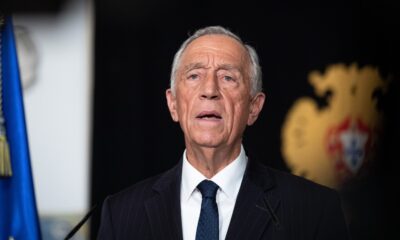
 Musings From Abroad2 days ago
Musings From Abroad2 days agoPresident de Sousa insists Portugal must ‘pay costs’ of slavery, colonial crimes
-

 Tech2 days ago
Tech2 days agoTanzania’s auto-tech startup Spana is simplifying car maintenance— CEO
-

 Culture2 days ago
Culture2 days agoNollywood thrown into mourning as another veteran actor Zulu Adigwe passes on
-

 VenturesNow2 days ago
VenturesNow2 days agoNigeria’s antigraft agency EFCC may try 300 forex racketeers


